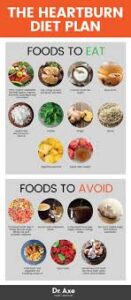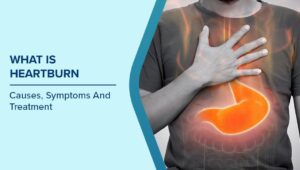why Some Meals Leave You With Gas And Burning Pain?
Introduction
Sometimes, after enjoying a meal, we feel uncomfortable with gas, bloating, or a sudden burning sensation in the chest. This discomfort can make us regret what we just ate. Many people face this issue, and it’s often linked to our eating habits, food choices, and digestive health. Understanding the reasons behind this can help us prevent the problem and enjoy meals without pain.
Common Causes of gas and Burning Pain?
We can often feel gas and burning pain in the stomach or chest after eating, and it can be uncomfortable. This happens when our digestive system gets disturbed due to certain habits, foods, or health issues. Understanding the causes can help us prevent the problem and keep our stomach healthy.
1. Eating Spicy and Oily Foods
We can often notice that spicy curries, fried snacks, or oily meals can trigger gas and burning pain. These foods take longer to digest and can irritate the stomach lining, causing a burning feeling.
2. Overeating at Once
When we eat too much in one sitting, our stomach gets overloaded. This may cause the food to stay longer in the stomach, producing more acid, which leads to gas and burning pain.
https://my.clevelandclinic.org/health/diseases/7314-gas-and-gas-pain
3. Carbonated and Caffeinated Drinks
We may enjoy soft drinks, sodas, coffee, or energy drinks, but they can increase stomach acidity and trap extra gas in our digestive system. This leads to bloating and burning discomfort.
4. Eating Too Fast
When we eat quickly without chewing properly, we swallow excess air. This air stays in the stomach and creates gas and burning pain, especially after meals.
5. Late-Night Eating
If we eat just before going to bed, our body doesn’t get enough time to digest the food. This can cause acid to flow back into the chest area, leading to a burning sensation and gas.
6. Stress and Anxiety
Our mind and stomach are connected. When we are stressed, digestion slows down, and this can cause gas and burning pain even if we eat healthy food.
7. Irregular Eating Patterns
We can often face problems if we skip meals and overeat later. This sudden heavy eating can shock the digestive system, causing acidity and gas buildup.
8. Low Fiber in Diet
When our meals lack fruits, vegetables, and whole grains, digestion slows, leading to constipation, gas, and sometimes a burning sensation.
- Spicy and Oily Foods
Meals with too much spice or oil can irritate the stomach lining. This irritation can lead to acid reflux, which causes that sharp burning sensation in the chest.
- Overeating
Eating large portions puts extra pressure on the stomach. This pressure can push stomach acid upward into the food pipe, resulting in discomfort and heartburn.
- Carbonated and Caffeinated Drinks
Soda, energy drinks, and coffee increase stomach acidity and gas formation, making it easier for acid to rise and cause a burning sensation in the chest.
https://fitsdaily.com/top-10-common-ca…-you-should-kno
- Eating Too Close to Bedtime
Lying down soon after eating can cause stomach acid to flow back up, especially if the meal was heavy or oily.
- Stress and Irregular Sleep
When we are stressed or lack proper sleep, digestion slows down, leading to bloating, gas, and a burning feeling.
- Food Intolerances
Some people react badly to certain foods like dairy, beans, or gluten, which can trigger excess gas and chest discomfort
How to Prevent Gas and Burning Pain?
We can often avoid discomfort like gas and burning pain by making simple changes to our eating habits and daily routine. Sometimes the problem is not just what we eat, but also how and when we eat it. By paying attention to a few healthy habits, we can keep our stomach calm and digestion smooth.
1. Eat Smaller, Balanced Meals
We can avoid putting extra pressure on our stomach by eating smaller meals more often instead of heavy meals at once. Large meals can cause bloating, gas and burning pain, especially if the food is oily, spicy, or fatty.
2. Avoid Trigger Foods
We may notice that certain foods like fried snacks, spicy curries, soft drinks, and too much coffee or tea can trigger gas and burning pain. Reducing these foods can make a big difference.
3. Eat Slowly and Chew Well
We should chew our food properly before swallowing. Eating too fast can cause us to swallow air, which leads to gas. Chewing well also helps our stomach digest food more easily.
4. Stay Upright After Eating
We can prevent acid from moving up into the chest area by staying upright for at least 30 minutes after meals. Lying down right after eating increases the chance of acid reflux, which causes burning.
5. Drink Water the Right Way
We should drink water throughout the day but avoid drinking too much water during meals, as it can dilute stomach acids and slow digestion. Warm water can help ease gas and burning pain naturally.
6. Manage Stress
Stress can affect our digestion and lead to discomfort. We can try relaxation techniques like deep breathing, meditation, or a short walk to keep stress levels low.
7. Avoid Late-Night Eating
We should finish dinner at least 2–3 hours before bedtime. This gives our stomach time to digest food properly and reduces the risk of gas and burning pain during the night.
8. Stay Active
We can keep digestion healthy by including light exercise like walking or stretching in our routine. Regular movement helps food move smoothly through the digestive tract.
Natural Remedies for Relief
We can often find quick comfort from gas and burning pain using simple natural remedies at home. These solutions are safe, effective, and don’t usually cause side effects like some medicines might.
1. Warm Water Sip
Drinking a glass of warm water can relax the stomach muscles and help trapped gas move out. It also supports smooth digestion and reduces the burning feeling in the chest or stomach.
2. Ginger Tea
Ginger is well known for calming the stomach. We can boil a few slices of fresh ginger in water, sip it warm, and feel relief from gas and burning pain. Ginger also reduces inflammation in the stomach lining.
3. Fennel Seeds (Saunf)
Chewing half a teaspoon of fennel seeds after meals can help release trapped gas and soothe the digestive system. Fennel also works as a natural mouth freshener.
4. Peppermint Leaves or Tea
Peppermint cools the stomach and relaxes digestive muscles. We can chew fresh peppermint leaves or prepare peppermint tea for relief from gas and burning pain.
5. Baking Soda Water
Mixing half a teaspoon of baking soda in a glass of water can neutralize excess stomach acid, giving quick relief from burning. However, it should be used only occasionally, not daily.
6. Chamomile Tea
Chamomile tea can calm stomach irritation, reduce bloating, and help with mild indigestion. Drinking it warm before bedtime can also improve sleep.
7. Carom Seeds (Ajwain)
Ajwain is a strong natural remedy for gas. We can mix it with a pinch of black salt and chew it, or boil it in water and drink it warm for relief from gas and burning pain.
8. Aloe Vera Juice
Aloe vera juice can cool the digestive tract, reduce acid reflux, and support overall stomach health. Drinking it in small amounts before meals can prevent discomfort.
- Ginger Tea – Helps reduce bloating and supports smooth digestion.
- Fennel Seeds – Chewing fennel seeds can calm the stomach and reduce gas.
- Banana – A gentle fruit that can coat the stomach and ease the burning sensation in the chest.
- Warm Water – Sipping warm water helps food move smoothly through the digestive tract.
When to See a Doctor
If the burning sensation in the chest happens often, comes with vomiting, weight loss, or blood in stools, it’s time to seek medical help
FAQ
- Can stress cause gas and burning pain?
Yes, stress can slow digestion and increase stomach acid, leading to discomfort. - Which fruits are best for avoiding chest burning?
Bananas, melons, and apples are gentle on the stomach and help prevent acid reflux. - How long after eating should I wait before sleeping?
It’s best to wait at least two to three hours after a meal before lying down. - Is milk good for chest burning?
Warm low-fat milk can help some people, but for others, dairy may trigger more acidity. - Can gas pain feel like chest pain?
Yes, trapped gas can cause sharp discomfort in the chest, but always get checked to rule out heart problems.

